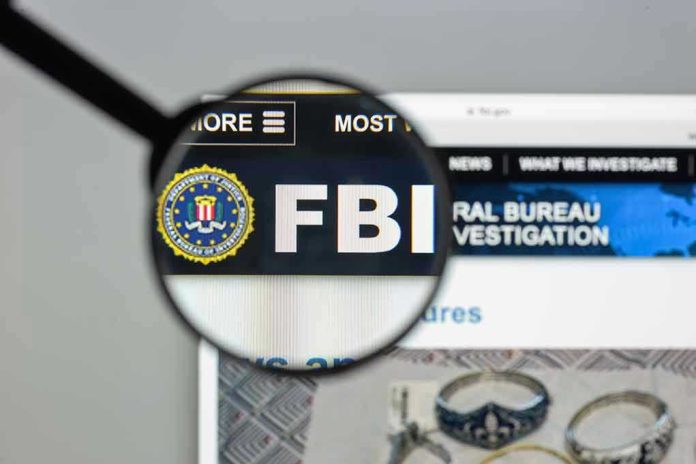
Federal agents are investigating a mysterious death on the Carnival Dream cruise ship, and the silence surrounding what really happened has left passengers, families, and the public demanding answers that, so far, nobody in authority seems eager to give.
At a Glance
- The FBI’s Houston Office is investigating a death aboard the Carnival Dream during a Western Caribbean cruise around July 23, 2025.
- The ship returned to Galveston, Texas, with few official details released, fueling speculation and concern among passengers.
- Carnival and the FBI both insist that federal involvement is standard protocol and that there is no evidence of foul play.
- The lack of transparency and the routine nature of “ongoing investigations” are prompting fresh scrutiny of cruise industry safety and federal accountability.
FBI on the High Seas: Cruise Turns into Crime Scene
Passengers expecting a relaxing getaway instead found themselves at the center of a federal investigation when, in the dead of night near Belize City, the Carnival Dream’s Serenity Deck became the scene of a tragedy. Sirens blared at 3 or 4 a.m., shattering the peace and sending a jolt of panic through the ship. Announcements urgently called for medical personnel, and rumors began swirling before the sun even rose. By the time the Dream docked back in Galveston on July 26, federal agents were waiting. Everyone wanted to know: What happened, and why the wall of secrecy?
So far, the FBI has been tight-lipped. All they will confirm is that an investigation is underway, and, as of July 28, there are no further details about the cause or circumstances of death. Carnival Cruise Line, for its part, says “facts do not suggest suspicious activity” and stresses that FBI review is “routine protocol” when someone dies at sea. But for the hundreds of passengers who witnessed the chaos, the platitudes and canned statements don’t cut it. The cat-and-mouse game of information between federal authorities and the public is nothing new, but it’s more than a little frustrating when it takes place on a floating city you can’t just walk away from.
Jurisdictional Jigsaw: Who’s Really in Charge?
Whenever tragedy strikes on the high seas, the legal waters get murky fast. The Carnival Dream, a Galveston-based ship with nearly 4,000 guests and crew, operates under a complex web of maritime law. The FBI is the lead agency for U.S.-flagged ships or when U.S. citizens are involved, but the Coast Guard and Customs and Border Protection are also in the mix. Carnival’s corporate legal team, meanwhile, is determined to keep communication tight and the brand’s image untarnished.
The family of the deceased, the crew, and the rest of the passengers are left to process the aftermath. Passengers are demanding answers about what happened on their vacation, and the family of the deceased deserves transparency. Instead, all they’re offered is silence, “ongoing investigations,” and boilerplate condolences from the cruise line. It’s the same script we’ve seen play out any time federal agencies get involved: the public gets stonewalled, while the bureaucracy grinds on at its own pace, insulated from any real accountability.
Safety and Trust in the Spotlight—Yet Again
With no indication of foul play and no details released, some experts argue this is just another unfortunate but routine death at sea. Cruise ships, after all, are like small cities; accidents and medical emergencies happen. But the lack of transparency feeds suspicion and erodes trust, especially when passengers are woken by sirens and medical calls in the middle of the night. The cruise industry, already under the microscope after years of health and safety scandals, can ill afford to look like it’s hiding something—even when it isn’t.
Short-term, there’s a spike in anxiety among would-be cruisers and fresh scrutiny of Carnival’s emergency response protocols. Long-term, this could prompt new policy reviews if systemic issues are uncovered. For now, though, the incident serves as a reminder of how little control the average citizen has when federal authorities, corporate lawyers, and international law collide—and how often the rights of everyday Americans seem to get lost in the shuffle. If there’s one thing we’ve learned, it’s that “routine protocol” is far too often an excuse for keeping the public in the dark.
Experts Weigh In: Routine or Red Flag?
Industry insiders and maritime law experts say the FBI’s involvement is standard and doesn’t mean there’s a crime. Legal scholars emphasize the need for transparency and thorough investigation to maintain public trust. Crisis management professionals say that Carnival’s controlled messaging is a textbook move to prevent panic—but that doesn’t make it any less infuriating for those kept out of the loop.
Passengers and online commentators have speculated about cover-ups and conspiracies, but both Carnival and the FBI have dismissed those rumors. All major updates are coming from official spokespeople and have been reported by reputable news outlets. Still, the central questions remain unanswered: Who died, how, and will we ever know the truth? If the government and corporate America want to restore faith in their institutions, they could start by treating the American people like adults who deserve real answers—not just empty assurances and endless investigations that never seem to end.



